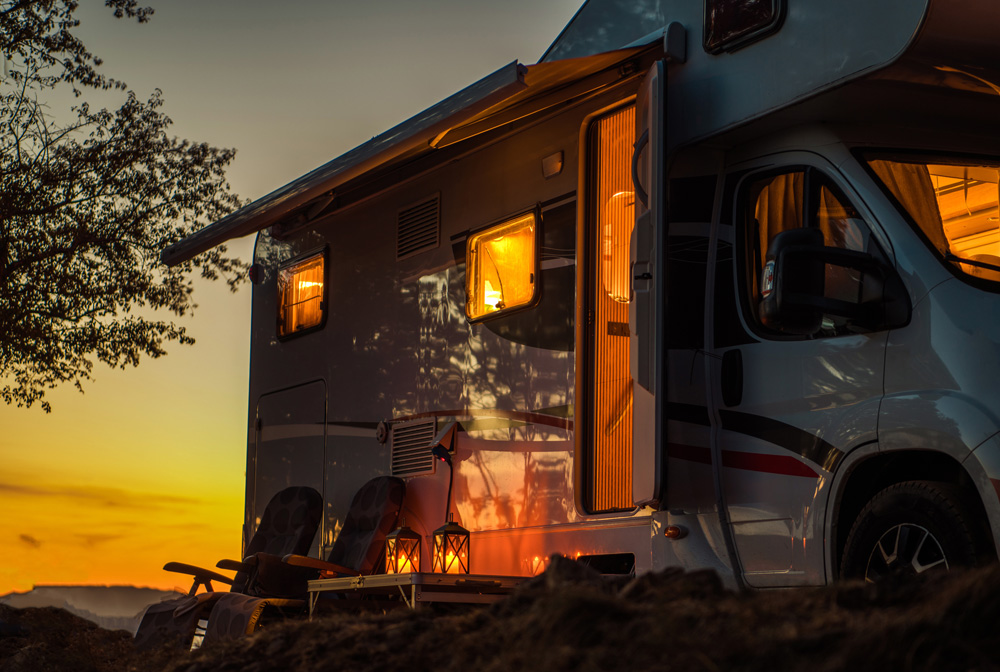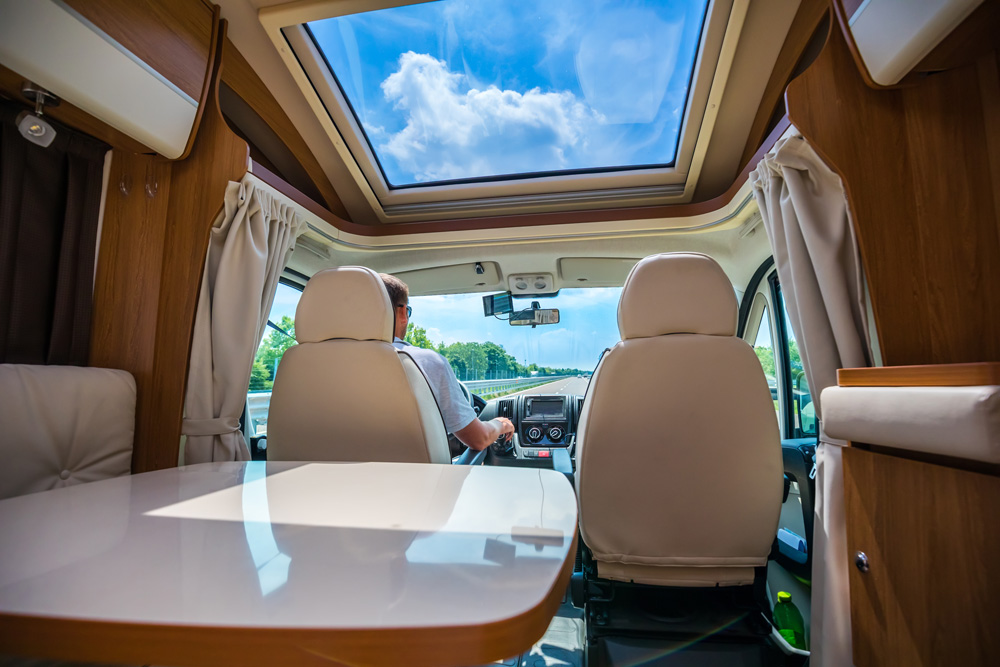If you’ve been dreaming of hitting the road this summer for quality camping, you’ve probably considered getting an RV. Or a trailer? What’s the difference between the two anyway? When it comes to living in a trailer versus living in an RV, you have different needs and wants to take into consideration. If you’ve asked yourself that, we’ve broken down the differences between camping units so you can make an informed decision.
Travel: Driving either unit has challenges, particularly if you’ve never driven a vehicle as large as an RV or towed anything like a trailer. Smaller RVs, like class B or C, can feel like driving an SUV or a large truck. A class A motorhome is more akin to driving a semi, so it will take some practice to get used to handling it. Towing anything behind a truck also has its challenges; high winds can feel like pulling the trailer off course, which can cause you to overcorrect if you’re not used to it. You’ll want to practice driving around town and on the highway.
Set-up: In an RV, you must level the vehicle, hook up the water, sewer, and electric, and open the slides. If you have a trailer, you must unhitch it and park it elsewhere. When towing a trailer, you must park the trailer first (which is arguably more difficult than parking a motorhome) and then unhitch the tow bar and safety chains before leveling, hooking up utilities, and opening any slides.

Mobility: When you get to the campground and set yourself up, which unit you have will determine your ability to check out the local area. Since an RV is your vehicle, you’ll be confined to the campground (unless you tow your car behind it), which is okay, depending on the amenities. With a trailer, you have to unhook it from the truck, and you’re free to venture out.
Space: Fifth-wheel trailers often have more space than motorhomes, as they need the driving area to take up any room. There are, however, very large RVs and small trailers. To maximize your living space, a fifth wheel is likely your best bet. A trailer doesn’t have the driving area taking up space, so all your space is living space.
Off-road: if you’re looking to go off the beaten path, you’ll have an easier time pulling a trailer on uneven roads. It will make moving the trailer around dips and ridges much more accessible than with an RV. However, make sure the road you’re looking to travel is safe for your vehicle, whatever you’re driving.


Family: If you plan to camp with small children, you might feel more at ease with a trailer. You’ll be riding in the vehicle doing the towing, where everyone will have a seatbelt or a car seat if the kids are young enough. An RV usually has seats and seatbelts for the driver and passenger, so that won’t be enough for anyone with children.
Cost: The upfront cost for RVs versus trailers is different. Trailers and fifth wheels are much cheaper than motorhomes. However, you may be looking at a hefty price tag if you need to buy a diesel truck and a trailer. A trailer is a much cheaper option if you already have a truck. However, the two options may be comparable in price if you need to purchase both a truck and a trailer.
Need more help in making your decision? Here at Vernon Recreation Products, we have a variety of RVs and trailers that you can look at, walk around, and inspect to see which one will best fit your needs.









